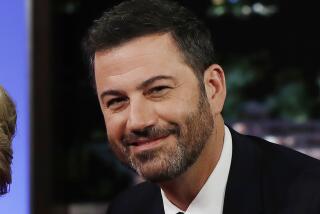Infant Heart Transplants Not So Exotic, Surgeon Says
- Share via
Pediatric heart surgeon Leonard L. Bailey said Monday that infant-to-infant heart transplant operations should no longer be considered “experimental” surgery and said other doctors should “not think of it as exotic--with a little experience it gets less awesome.”
Bailey, who has performed seven successful infant heart transplant operations at Loma Linda University Medical Center in the last two years, made the remarks at the American Heart Assn.’s 60th Scientific Sessions held at the Anaheim Hilton Hotel and Convention Center.
But not all of the 800 surgeons and pediatric cardiologists who heard Bailey speak agreed with his assessment, and some cautioned that the long-term success of infant heart transplant operations are still unknown.
Whether such operations are considered “experimental” or “therapeutic” surgery is more than just scientific labeling. In practical terms, the classification of the surgery affects whether the operation may be covered by Medi-Cal, the federally and state-financed health care program for the poor, and by private insurance companies. Insurance companies and the state and federal government refuse to pay for surgery they classify as experimental. Instead, typically hospitals, and sometimes patients, pay for experimental treatments.
Medi-Cal Rejects Requests
Loma Linda University Medical Center, which has absorbed the average $87,000 cost of each such procedure in most cases, has made preliminary requests for Medi-Cal reimbursements from state and federal officials but has been turned down, Bailey told reporters after making a formal presentation on his work with infants.
Bailey said that was “unfair” in light of Loma’s Linda’s track record.
“Any other child with a heart disease gets a reimbursement for treatment--just because it is a transplant they do not,” Bailey said. “I think that is discriminating.”
In a telephone interview, Maridee Gregory, acting chief of California Children Services, which provides funding for medical care for children with severe physical handicaps, said, “Our policy right now is that infant heart transplants below the age of 2 are still experimental--that is the view of our cardiac consulting committee.” The committee includes pediatric cardiologists and surgeons from across the state, she said.
However, Gregory added, “if the results continue to be as good as they are now, at some point in time it may become an approved therapeutic procedure--but not this minute.”
In recent months, Loma Linda has been reimbursed by the Canadian government for surgical costs and some transportation costs from transplant operations performed on three infants from that country, Loma Linda officials said. In addition, Metropolitan Life Insurance Co. two months ago agreed to cover such operations at Loma Linda for certain policyholders, they said.
In all, Bailey has performed 10 infant-to-infant heart transplants since 1985, mostly on newborns born with a fatal defect called hypoplastic left heart syndrome. Three have died.
The 43-year-old surgeon gained national prominence in October, 1984, when he implanted the heart of a baboon in a 2-week-old infant known as Baby Fae. The baby, who suffered from hypoplastic left heart syndrome, died 21 days later. Bailey has said he will perform more cross-species transplants because of a shortage of infant hearts available for transplant.
According to Loma Linda officials, as of Oct. 25, 19 newborn and infant heart transplant operations had been performed at other hospitals around the world. Seven of the infant are surviving.
Bailey said five of the surviving infants who received their new hearts at Loma Linda a year or more ago and “have been thoroughly investigated and the results are extremely favorable.”
Recent tests showed that “these babies are not rejecting their hearts. . . . Their hearts are growing along with their bodies,” Bailey said. He added that their daily doses of potentially toxic immunosuppressant drugs have been reduced to “very small amounts.”
David Baum, head of the pediatric cardiology department at Stanford University Medical Center, however, tried to temper Bailey’s glowing remarks by saying that “we don’t know yet what will happen to these children” and disagreed that infant heart transplant operations have moved beyond the experimental stage.
“There is a lot we do not know about the use of immunosuppressant drugs,” Baum said at the conference. He was referring primarily to cyclosporine, a drug developed in 1980 that helps prevent the body from rejecting a new heart. Long-term use or heavy doses of cyclosporine have been known to cause kidney and liver problems as well as tumors.
Bailey said he is encouraged that other medical institutions including Stanford are preparing to conduct heart transplant operations on newborns, which he said are easier to treat than older babies and children.







